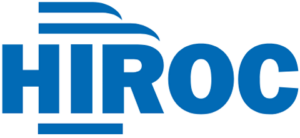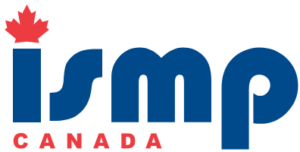Fatal Choking Incident Associated with Inappropriate Use of Psyllium
This bulletin raises awareness about the contraindication of psyllium use in individuals with dysphagia and the risks of psyllium administration with an inadequate volume of liquid. Analysis of the reported incident also underscores the importance of communicating critical medication information to all members of the health care team, and to patients and caregivers, to reduce the risk of choking incidents.
INTRODUCTION
A resident experiencing dysphagia (difficulty swallowing) who lived in a long-term care home suffered a fatal choking incident following inappropriate use of psyllium powder. This bulletin underscores the need for strategies to reduce the risk of harm in individuals who experience dysphagia, a condition that is common among hospitalized older adult patients and long-term care residents. This also serves as a reminder of the importance of understanding psyllium product ingredients, warnings, and instructions for use.

Example of psyllium powder being mixed in a glass of water.
INCIDENT DESCRIPTION
Psyllium was prescribed off-label to manage chronic diarrhea in a resident of a long-term care home. The resident was also experiencing dysphagia. In this home, medications for residents with dysphagia were typically crushed and mixed with applesauce before administration. However, after a previous choking episode with psyllium (months earlier), consultation with a dietitian led to the recommendation that psyllium be mixed with water or juice, instead of applesauce. Specific preparation instructions to mix with 100 mL of water or juice were provided in the medication administration record (MAR).
In the incident associated with the resident’s death, 10 mL (approximately 14 g) of psyllium powder was incorrectly mixed with applesauce and given to the resident, who was seated upright; an unknown volume of thickened liquid was subsequently given. A staff member heard the resident coughing and choking. Despite attempts to clear the airway, the resident’s clinical condition continued to deteriorate, and they could not be resuscitated. It was later determined that the psyllium powder and applesauce (possibly combined with the thickened liquid) had formed a mass in the esophagus that compressed the airway.
BACKGROUND
Psyllium husk, a soluble fibre, is a natural health product widely used for its bulk-forming properties, which improves stool consistency. There are many psyllium-containing products (including powders and capsules) marketed in Canada. Psyllium is indicated to treat constipation,1 and is sometimes used off-label to manage chronic diarrhea.2,3
When psyllium powder is mixed with a sufficient amount of liquid, psyllium swells, taking on a gel-like consistency. However, if the amount of liquid is inadequate, the psyllium may form a mass that can block the esophagus and impede the airway, leading to choking.4-6 Psyllium has been reported to form bezoars (masses of undigested material) resulting in obstruction of the esophagus7 or the intestinal tract.8,9
Psyllium is contraindicated in individuals with dysphagia.1 It is estimated that up to one-third of older adults living in the community and about half of those in long-term care experience dysphagia.10,11 Careful medication management is needed for this population.
DISCUSSION
This incident highlights the complexity of medication use in individuals experiencing dysphagia. Possible contributing factors to the incident were identified.
- Knowledge gaps among the care team regarding:
- the contraindication of psyllium in individuals experiencing dysphagia and the potential risk of esophageal obstruction
- the requirement to administer an adequate volume of liquid due to the hygroscopic (ability to absorb water from air) and swelling properties of psyllium
- Overlooked administration directions in the MAR to prepare psyllium with water or juice; this phenomenon can be referred to as inattentional blindness.
- Confirmation bias due to the typical practice of preparing other medications in applesauce for residents with dysphagia.
- Lack of instructions to mix psyllium powder with 250 mL of liquid. At the time of the incident, this information was provided on the product label, however, not on the product website nor the product information published by Health Canada. In response to this analysis, the manufacturer of the product involved has updated the website.
RECOMMENDATIONS
To address the identified risks and to enhance the safe use of psyllium and other hygroscopic bulk-forming products (e.g., methylcellulose, calcium polycarbophil), the following strategies are presented.
Health Care Facilities
- Make critical information (e.g., mix medication with water) in medication information systems more prominent.12
- Work with system vendors to create decision supports and alerts for providers at the point of care.12
- Create an alert in the prescribing module that psyllium is contraindicated in individuals experiencing dysphagia.
- Provide clear instructions that psyllium should be mixed with a liquid and administered immediately at the point of care.
- Implement a protocol for monitoring patients with dysphagia during and after the administration of dietary products (e.g., thickened liquids) or medications.13 The protocol should be made with interprofessional collaboration, including a dietician and speech language pathologist, and incorporate a standardized brief observation period to detect early signs of aspiration or choking.
Prescribers and Care Teams
- Use an alternative to psyllium for patients experiencing dysphagia.1 Currently, there is no evidence to support the safe use of psyllium in this patient population.
- Mix psyllium with an adequate volume of liquid.1 Do not mix psyllium with food, including applesauce.
- Conduct interdisciplinary medication reviews for patients experiencing dysphagia,12 incorporating feedback from patients, caregivers, physicians, nurses, personal support workers, dietitians, speech language pathologists, and pharmacists.
- Communicate special instructions to the patient and their family or caregivers who may assist with feeding or medication administration.
Manufacturers of Psyllium Products
- Prominently display critical information14 (e.g., contraindications and volume of liquid to be mixed with psyllium powder) on the product label, product website, and Health Canada’s Licensed Natural Health Products Database. Given that psyllium products are considered natural health products and can be purchased without guidance from a health care provider, clear and specific instructions and warnings are essential.
CONCLUSION
Psyllium is a widely used product that, when taken or given outside of recommended guidelines, can result in harmful outcomes. This bulletin raises awareness about the contraindication of psyllium use in individuals with dysphagia and the risks of psyllium administration with an inadequate volume of liquid. Analysis of this incident also underscores the importance of communicating critical medication information (e.g., minimum volume of liquid) to all members of the health care team, and to patients and caregivers, to reduce the risk of choking incidents.
![]()
The Canadian Medication Incident Reporting and Prevention System (CMIRPS) is a collaborative pan-Canadian program of Health Canada, the Canadian Institute for Health Information (CIHI), the Institute for Safe Medication Practices Canada (ISMP Canada) and Healthcare Excellence Canada (HEC). The goal of CMIRPS is to reduce and prevent harmful medication incidents in Canada.
Funding support provided by Health Canada. The views expressed herein do not necessarily represent the views of Health Canada.

The Healthcare Insurance Reciprocal of Canada (HIROC) provides support for the bulletin and is a member owned expert provider of professional and general liability coverage and risk management support.

The Institute for Safe Medication Practices Canada (ISMP Canada) is an independent national not-for-profit organization committed to the advancement of medication safety in all healthcare settings. ISMP Canada’s mandate includes analyzing medication incidents, making recommendations for the prevention of harmful medication incidents, and facilitating quality improvement initiatives.
Report Medication Incidents (Including near misses)
Online: ismpcanada.ca/report/
Phone: 1-866-544-7672
ISMP Canada strives to ensure confidentiality and security of information received, and respects the wishes of the reporter as to the level of detail to be included in publications.
Stay Informed
Subscribe to the ISMP Canada Safety Bulletins and Newsletters.
This bulletin shares information about safe medication practices, is noncommercial, and is therefore exempt from Canadian anti-spam legislation.
Contact Us
Email: cmirps@ismpcanada.ca
Phone: 1-866-544-7672
©2025 Institute for Safe Medication Practices Canada.
